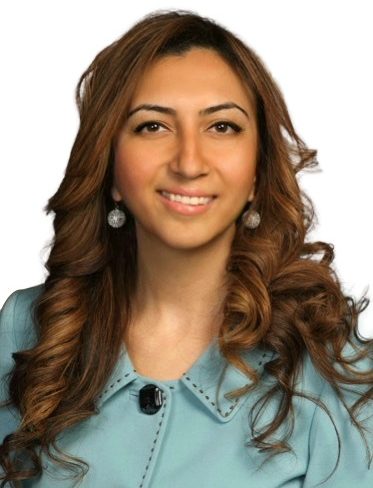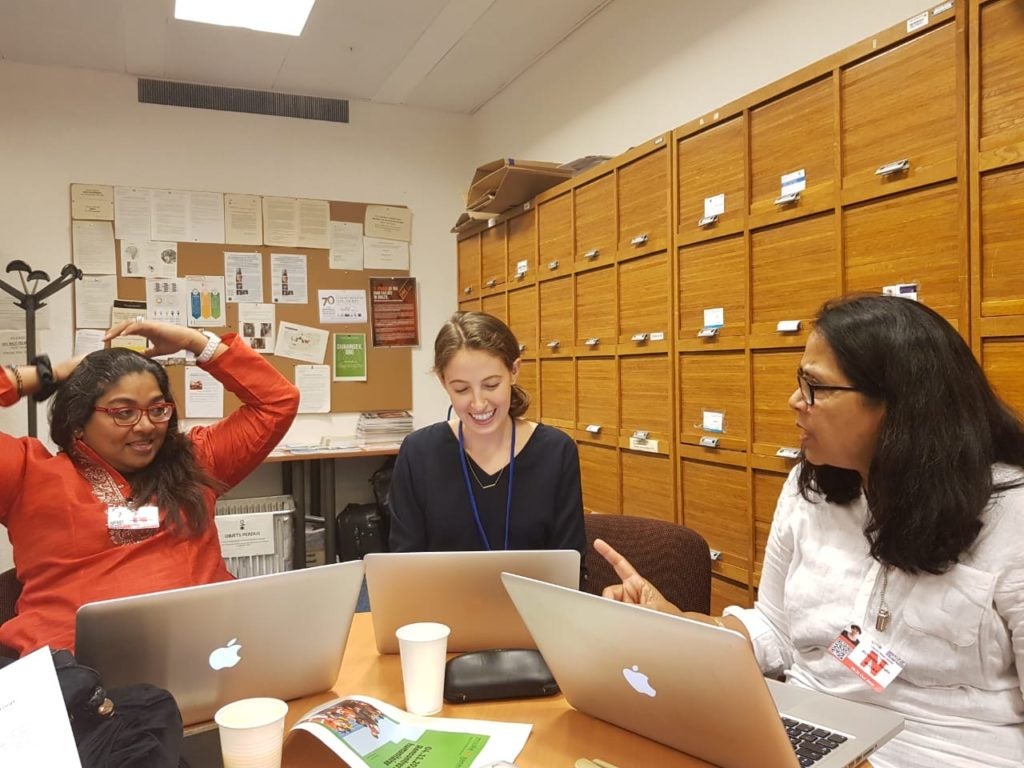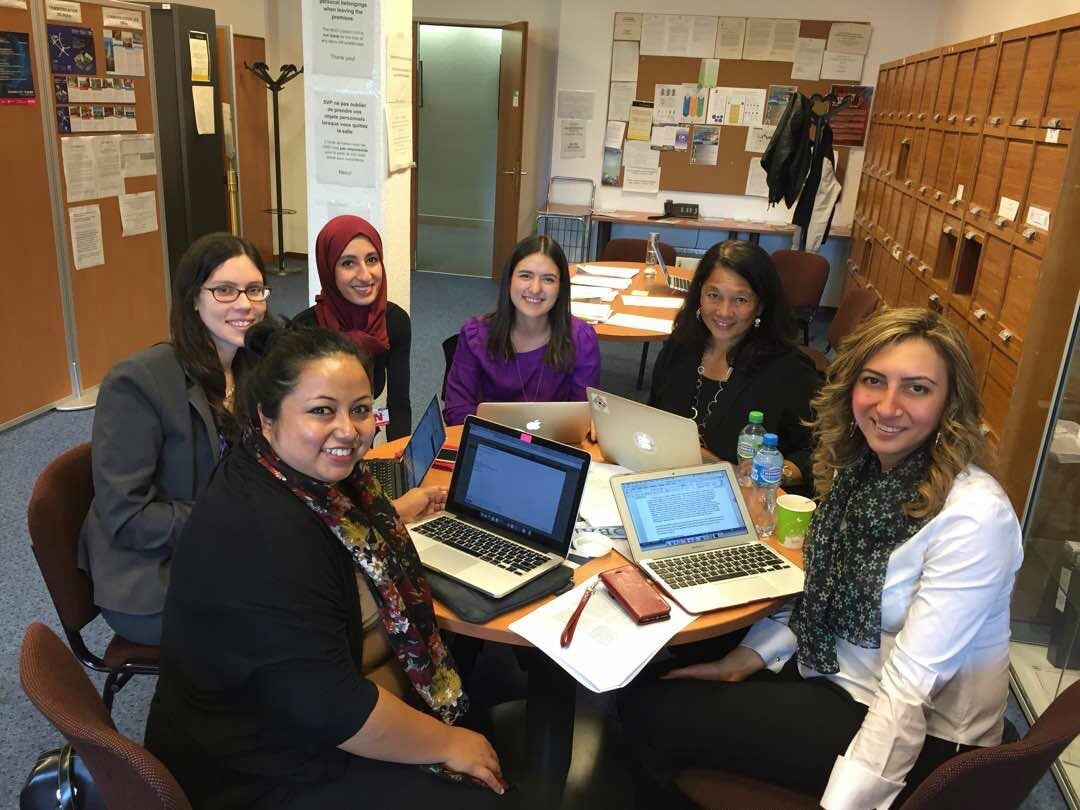Since joining Harvard Law School, Salma Waheedi, a clinical instructor and lecturer on law in the International Human Rights Clinic, has devoted a major part of her teaching and clinical legal practice to training students to become effective international women’s rights advocates. A native of Bahrain and a U.S.-trained attorney with a background in constitutional and Islamic Law, Waheedi has led advocacy and social justice-oriented legal projects in partnership with women’s rights activists in Muslim communities. To change the lived experiences of women most acutely, Waheedi and her partners have focused on family law reform.

“Despite its huge impact on women’s lives, it’s an area that receives relatively little attention in human rights circles,” Waheedi said. “We are talking about a system of laws that govern all aspects of women’s private lives, including marriage, divorce, child custody, matrimonial property, inheritance, as well as freedom of movement and work and protection from violence.”
Advocating for family law reform in Muslim legal contexts presents a unique set of challenges and sensitivities. In the majority of Muslim legal systems, Shari’a—Islamic Law—is a part of the constitutional order and often forms the foundation of Muslim family laws. Many of these laws are based on interpretations that entrench gender-based discrimination and fail to protect women’s rights in the family sphere.
Waheedi’s practice focuses on lending legal support to women’s rights advocates working with their local communities, as well as international coalitions working to foster cross-regional collaborations. One key example is Musawah, a global movement advocating for justice and equality in the Muslim family. Musawah takes strong positions against child marriage, forced marriage, and polygamy and calls for equality in spousal rights, custody rights, access to divorce, and inheritance rights. It advocates for these changes through a holistic framework that integrates progressive Islamic legal interpretations, human rights principles, local constitutional guarantees of equality and non-discrimination, and the lived experiences of Muslim women.
“Many current legal provisions are no longer tenable given the lived realities of Muslim women today,” Waheedi said. “Muslim feminist scholarship aims to create a paradigm shift by emphasizing the need to return to the core principles of the Quran, such as justice, equality, and dignity for all, as a basis for an alternative rights-based reading of Islamic legal sources that responds to the contemporary needs of the Muslim family.”
To help conceptualize current reforms and outdated laws, Musawah and Waheedi’s student teams have put together a comprehensive Muslim family law mapping project. The project is a resource for researchers and academics to look comparatively across 31 countries with Muslim majorities or minorities. Importantly, the initiative also outlines positive developments for women’s rights in the Muslim world, celebrating successes, as well as marking lessons for how to continue to advocate for change.

Over the years, Waheedi’s student teams have also collaborated with international coalitions, local organizations, and grassroots activists to develop legal reform proposals and strategic advocacy reports to address gender discrimination in countries including Jordan, Nigeria, Kuwait, Oman, Qatar, Kenya, Mauritius. Salomé Gómez Upegui LL.M. ’18, who worked with Waheedi in 2017-2018, said working on such advocacy reports required “creative thinking,” asking students to learn and rely on comparative law, alternative interpretations of Islamic law, and human rights standards. After working on the reports, students often worked closely with activists to develop engagement strategies with their local legislatures or at the international level with United Nations mechanisms.
In fall 2018, International Human Rights Clinic alumna Samantha Lint ’20 worked with Waheedi, Musawah, and Mauritian family law expert, Narghis Bundhun, to document gaps in legal protection for married Muslim women. After working on the report, Lint traveled with Waheedi to present the findings to the U.N. Committee on the Convention on the Eliminations of All Forms of Discrimination Against Women. Lint, who had come to law school after working in women’s empowerment and global reproductive health, learned a tremendous amount about how to “support NGO advocacy in a U.N. treaty review process.” Importantly, she noted, working on the project demonstrated how change is possible within a large and bureaucratic organization like the U.N.
“After presenting our report to the CEDAW Committee, several members focused on the issues we raised when questioning the government of Mauritius. The government seemed a bit taken aback, and the committee really emphasized the problems with the lack of clear codified rights for Muslim religious marriages,” Lint said. “I saw that civil society advocates are a huge resource to the Committee, and are key in elevating issues that may otherwise go overlooked.”
Moreover, after presenting the report to the U.N., Lint and her team learned that the “the review process served as a catalyst for on-the-ground discussions and change [in Mauritius].”
Waheedi emphasized that she teaches her students that, as international lawyers, their role is to amplify the voices of local communities and grassroots activists.
She added, “local activists know the situation on the ground best. They are very clear about their priorities and needs. But many of these activists don’t always have the capacity or the resources to manage a full advocacy campaign at the international level. That’s where we come in,” she said. “In those cases, we have been able to work with the advocates to distill issues of concern, articulate proposals for legal reform, formulate advocacy strategies, and help them figure out where to put pressure on certain priority points to make change happen. But at the end, their voices are the ones that must be heard.”
Tarek Zeidan, executive director of the LGBT rights organization, Helem, was a cross-registered Harvard Kennedy School student in the International Human Rights Clinic. Zeidan worked with Waheedi on a project advocating for legal equality and protection of women from violence in Kuwait and Oman, gathering testimonies from local women and learning how to weave such first-hand evidence into documentation for advocacy purposes.
Working on the project gave Zeidan professional insight into how to structure human rights documentation and link it to “existing international legislatures to make the strongest case for equality-oriented legal reforms.”
Zeidan still draws on the lessons he learned with Waheedi as he now leads Helem in Lebanon: “I based a lot of our engagement plans with international organizations like the Office of the High Commissioner for Human Rights or the United Nations Development Programme on what I learned about appealing to international organizations in the clinic.”
“One of my main objectives is to train lawyers and advocates who would listen mindfully, set aside their assumptions and preconceptions, and work in collaboration with local activists and communities to develop solutions that correspond to their needs and priorities. Strengthening students’ cross-cultural sensitivity and the competency to translate between contexts are key learning goals in all these projects,” Waheedi said.
In 2018, Waheedi was named associate director of the Program on Law and Society in the Muslim World, a research program at Harvard Law School, which has enabled her to foster stronger engagement with scholars and policy experts and to bring contemporary debates on gender, feminism, and legal advocacy in Muslim contexts to HLS.
In late November, Waheedi will participate in Musawah’s global convening on Muslim family law reform, which will bring together activists, scholars, and policy makers from over thirty different countries to strengthen networks of mutual learning and support. Advocates will hold consultations over the course of five days to identify key barriers and challenges to reform in national contexts, share good practices, and work to develop key messaging to build public support for advancing equality and justice and to challenge Islamist and Islamophobic narratives.
The meeting will also celebrate and build upon the recently launched Musawah initiative, the Global Campaign for Justice in Muslim Family Laws. In early October, Waheedi curated a webinar for the Program on Law and Society in the Muslim World to highlight the campaign and the voices of Muslim women activists campaigning for egalitarian reform. The webinar, titled, “Muslim Women Creating New Futures,” featured Zainah Anwar, executive eirector of Musawah; Marwa Sharafelden, Musawah’s MENA region senior expert; and Hala Al-Karib, regional director of the strategic initiative for women in the Horn of Africa, and was moderated by International Human Rights Clinic alum Upegui.
Today, the COVID-19 pandemic has made “the work more relevant and urgent,” says Waheedi. As the UN has observed, the virus has been associated with a “a shadow pandemic,” a rise in violence against women and girls, and has exacerbated inequalities faced by women in the realm of marriage and the family. Musawah’s campaign and Waheedi’s advocacy for women’s rights operate within this context.
“It is important to recognize that there are no quick wins in this line of work, yet my students and I are always motivated and inspired by the dedication and perseverance of our partners in the most challenging of circumstances. We are energized by positive changes that are achieved through the relentless work of grassroots activists and organizers—from family law reforms in Jordan and Morocco to passing a law against domestic violence in Kuwait this year to banning triple talaq in India in a 2017 Constitutional Court victory. Change is not only possible; it is inevitable.”
